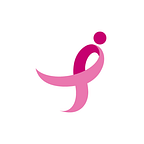Men’s Health Month: Men Can Get Breast Cancer, Too
By: Natalie Lennon, 2018 Summer Communication/Marketing Intern
Every June, we celebrate Men’s Health Month and encourage the guys in our lives to make their health a priority. Even though breast cancer in men is rare, it can and does happen.
A sudden lump or change in the size of the breast may not alarm some men; this may be because breast cancer is commonly believed to be a disease that only impacts women. Men can get breast cancer too!
Men are warned to watch out for signs of testicular or prostate cancer, so what are the odds a man might end up with breast cancer?
Symptoms and Statistics
All males and females are born with breast cells and tissue, but men do not experience the same complex breast growth and development as women.
Because of this, less than 1 percent of males in the United States are affected by breast cancer.
Men of all races and ages can experience breast cancer, but it is most prevalent in older black men. Getting older is the most common risk factor for breast cancer in both men and women.
Males with breast cancer exhibit similar symptoms to females, such as lumps, changes in the shape of the breast, rashes on the nipple, dimpling or redness of the skin and nipple discharge.
These symptoms are easier to notice in men because they have less breast tissue than women, which is why it is crucial for men to report any changes in their breasts to their doctor.
Men are often diagnosed at a later stage than women, possibly because men are less likely to report symptoms.
Since diagnosis and treatment in men is often delayed, survival rates are about the same for men and women when their stage at diagnosis is the same.
Breast Self-Awareness in Men
Breast cancer doesn’t discriminate. This disease can affect anyone, regardless of gender, race, etc. It is important for everyone to become breast self-aware, and that includes men.
Some ways to become self-aware include:
1. Know your risk
Understand your family health history and speak with your doctor about your risk for developing breast cancer.
2. Get screened
Men at higher risk for breast cancer should schedule a yearly clinical breast exam starting at age 35 and learn how to do a breast self-exam.
3. Know your normal
You know your body better than anyone else. If you notice any unusual lumps, swelling, pain or discharge, make sure to contact your doctor right away.
4. Make healthy lifestyle choices
Positive lifestyle habits can be extremely helpful in reducing your risk of getting breast cancer.
Make sure you are maintaining a healthy weight, incorporating daily exercise and limiting alcohol consumption.
Early detection increases treatment options, and more importantly, chances of survival.
Men are #MoreThanPink
This June, let Men’s Health Month serve as a reminder that men’s health should be a priority. Encourage the men you love to schedule their annual checkup, maintain a healthy lifestyle and know their normal.
Men & Breast Cancer Support Group
Komen’s Breast Care Helpline 1–877 GO KOMEN (1–877–465–6636) offers a free, 12-week telephone support group for men with breast cancer. The helpline provides a safe place for men to discuss the challenges of breast cancer, get information and exchange support.
To learn more and register for the next group, call the Komen Breast Care Helpline at 1–877 GO KOMEN (1–877–465–6636) or email helpline@komen.org.
You are never alone. Learn more about our support services and ways to get involved in the fight against breast cancer at komencsnj.org.
